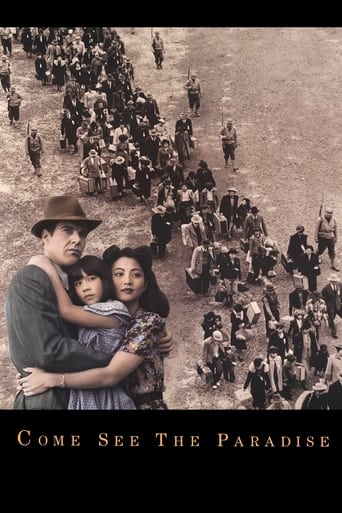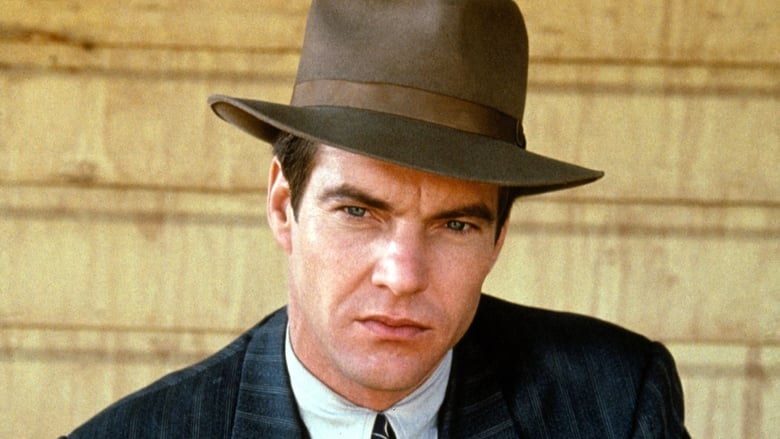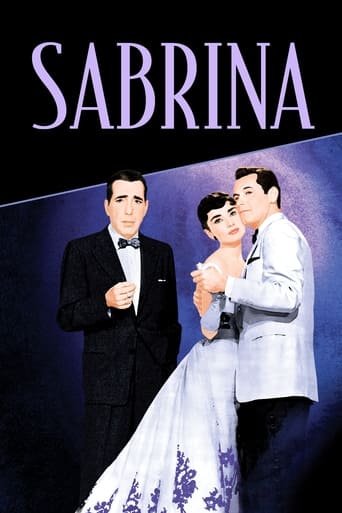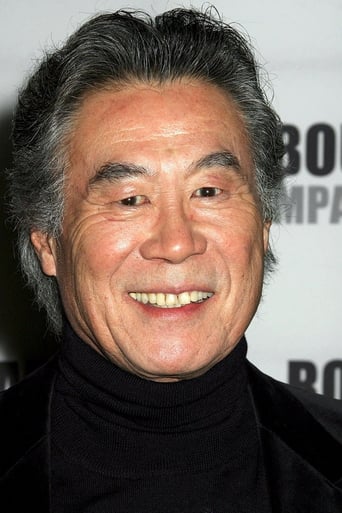

Come See the Paradise (1990)
In this drama from director Alan Parker, on-the-lam Jack McGurn flees to Los Angeles and takes a job as a projectionist at a movie theater owned by a Japanese-American man. Jack falls for the owner's daughter, Lily, but they are forced to elope to Seattle when her father forbids the relationship. The couple marry and have a daughter, but when World War II breaks out, Jack is powerless to stop his new family's forced internment.
Watch Trailer
Cast
Similar titles




Reviews
Memorable, crazy movie
Exactly the movie you think it is, but not the movie you want it to be.
This movie tries so hard to be funny, yet it falls flat every time. Just another example of recycled ideas repackaged with women in an attempt to appeal to a certain audience.
Through painfully honest and emotional moments, the movie becomes irresistibly relatable
A problematic film to say the least. Of the only good aspects of the film is the accuracy with which it portrayed the experience of Japanese Americans in internment camps. It showed their confusion, loss of identity, and suffering in a very authentic way. However, it was completely ridiculous to create a film about such a shameful time in American history through the lens of a love story, especially one riddled with sexism and racial stereotypes. In my opinion, the middle of the movie is quite gripping, well-acted, and historically accurate. In all other areas, the film is unfortunately a flop. Topics of this significance should not be treated with such insensitivity.
Yes, the American supreme court made a grave error in judgement when they ruled that the internment of Japanese Americans was legal under the U.S. Constitution. However, this film, Come See the Paradise, is (see apt title of this review) trash. While this film makes an obvious effort to highlight the widespread prejudice and violence against Japanese Americans in the mid-twentieth century, it relies on racial stereotypes and a pathetic love story. As a character, Jack/Dennis Quaid (one of the few white actors in the film) is completely unnecessary to the storyline, and makes leaves the impression that the story is only significant because it affects the life of a good ol' American boy. There is great potential in the concept of this film, but would need a new director/script/plotline and much less Dennis Quaid.
The film Come See the Paradise is a fairly standard Hollywood depiction of internment camps in the sense that it fails to focus on the many of the issues concerning internment and instead spends most of the film following an unbelievable and not convincing love story. The issue of Japanese internment is a charged subject and one of the darkest moments in American history. Thousands of American citizens and immigrants had their rights violated in dramatic ways because of racial prejudice. If one wants to portray this event in American history, the film must be tactful and treat the stories with care-Come See the Paradise failed to do this in almost every scene in the movie. The majority of movie, which runs two hours and eighteen minutes long, follows the relationship of Lucy Kawamura, an American citizen of Japanese descent portrayed by Tamlyn Tomita, and Jack McGurn, an Irish American played by Dennis Quaid who once again proves he can only be called an actor on a technicality. Watching their relationship unfold on the screen is frustrating to say the least. The film fails to address the real animosity an interracial couple at that time would face and therefore misses an opportunity to make a powerful commentary on the American social norms. Also, the character of Jack McGurn does not need be in the film at all. His character just serves as a way to engage traditional American audiences and generally detracts from any points the film attempts to make. There are several instances in the film which occur in the camp that are impactful. The discussion of the loyalty clauses the American government wanted the internees to sign and the dismal conditions within the camp were discussed and portrayed well. The film, however, choses to not focus on these events and instead continues to follow Jack McGurn and his struggles within the army. The film should have remained focused on the Kawamura family's experiences within the camp and attempt to portray the hardships and complex decisions which emerged during the course of the internment. Substance was sacrificed in this film in order to create a movie that would appeal to American audiences. Yet the film was still dismal by Hollywood standards as it had a cliché script, terrible acting, and overall muddle plot line which contained no resolution. I personally feel that if one is going to make a film about such as sensitive topic as Japanese Internment during World War II commercial goals should not be valued as much as concern for the memory of the victims and survivors.
Come See the Paradise is a Hollywood dramatized historical film. It incorporates aspects of historical facts, but alters it greatly in order to make it more relatable to the average American. What does that mean in terms of the film? Well there must be a straight, white male lead because who can relate to Japanese Americans? This creates a noticeable flaw in the film as a whole. Dennis Quaid's character felt unnecessary, stereotypical, largely one-dimensional, and empowered by an overly noticeable sexual energy. Additionally, for a hefty film time of two hours and eighteen minutes, it felt as though only ~thirty of those minutes were spent inside the internment camp itself. It wasted so much time attempting to humanize these characters, and create backgrounds for them that it became confusing as to what type of movie we were watching. Although I appreciate the dedication for attempting to flesh out these characters more, most of this development could have been taken place within a camp setting. I did appreciate the depiction of portraying an interracial couple during a very racist time period. It was interesting to see how the Japanese family reacted to the situation, and seeing the expectation that Japanese women had in terms of their love life. It would be more important and realistic though to portray how society reacted to this couple. In 1940s California, people would not be accepting of a Japanese-American couple. This was a time where Japanese, or even other East Asian immigrants who appeared Japanese, were at times assaulted on the streets. The film touched on this with the racist Santa Claus, but this even had issues with it. Because of the film only depicted the racism through this one scene, it appears as though only a few Santas were racist, when in reality it would have been a majority of Santas! In reality, this couple would struggle to live their lives due to societal racism. They would be unable to eat at restaurants without complaint, see films, raise their daughter, etc. This was not depicted in the film. In fact, the film dedicated more time displaying how the Japanese family disapproved of the couple compared to society, that it made it seem that Japanese were more racist towards Americans, than Americans towards Japanese! This is an inaccurate depiction that severely hurt the films credibility.








